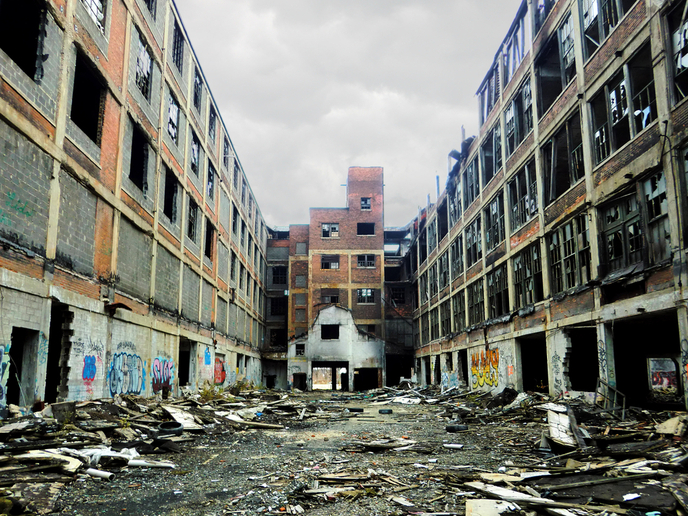Would we know if society was about to collapse?
“The basic question is how do you define ‘collapse’?” says Bar-Oz, an archaeologist at the University of Haifa(opens in new window). “It’s a subjective answer.” It could mean a collapse in your personal life, in the institutions that you rely on, or the fabric of the society around you. And such declines are relative: a citizen living in a wealthy country might consider it a collapse if their living standards were to drop to those experienced by most people in the world. Despite its subjectivity, archaeologists do have characteristics they look for that signal the decline of civilisations, including disruption to trade routes, shifts in supply and demand, disease, environmental degradation, and extreme political dysfunction. “For example, you can see that the basic needs of society are not being met, or cannot be accomplished,” explains Bar-Oz. “Losing food security, losing basic security, everyone agrees this is a way to measure collapse.” Seen from a distance, the collapse of civilisations looks like a clearly defined point in time. But the process can take hundreds of years. “Humans love catastrophic ends, like the destruction of Pompeii, but in most cases, societal collapse is part of a long process,” says Bar-Oz. “Even a society that is facing a process of collapse – does it know? Or can you only see it after it happens?”
Isolated islands
There are exceptions to this rule – societies that are isolated geographically and economically are much more vulnerable to rapid decline. Island populations especially can see their resources depleted too quickly, or experience a freak event that pushes them beyond the point of recovery, and suddenly collapse as a result. An example are the Norse settlements in Greenland, founded under Erik the Red. These experienced a sudden decline from the 14th century, potentially due to falling temperatures and ecological degradation from unsustainable farming practices. Modern communities living in dryland habitats, which rely on seasonal rains, are also particularly vulnerable to climate fluctuations. “Global warming will affect these places more, the fragility of society is much higher there,” adds Bar-Oz. “If certain elements change, even at a low magnitude, the system might not recover.” In Bar-Oz’s EU-funded research into the disappearance of Byzantine communities in the Negev desert, this phenomenon was apparent. “Local shepherds can go with flocks of goats which eat everything. The overgrazing can be so strong that most of the plants do not reach flowering, so there are no seeds left.” This type of ecological collapse can happen very quickly, he says. Political turmoil, ecological degradation and a pandemic – it seems like the doomsayers might be right. So is there anything that can help secure us against the downfall of civilisation? “Technology,” replies Bar-Oz. “That is a capitalist perspective, but every crisis brings investment opportunities for other technologies, and this gives us a lot of resilience. We can do agriculture in the desert with desalination, for example.” Bar-Oz’s research on Negev hoped to identify why this Byzantine society declined from the middle of the 6th century. However, “we could not negate any particular point or the other,” he remarks. There is no shortage of possible culprits: the Justinian plague, the Islamic conquest, and an Icelandic eruption that plunged Europe into 18 months of darkness and famine. All of which have lent some scholars to label 536 CE as the “worst year in history to be alive”. Maybe things today aren’t so bad after all. Click here to find out more about Guy Bar-Oz’s research: Enduring mystery surrounds the collapse of a Byzantine society



